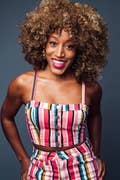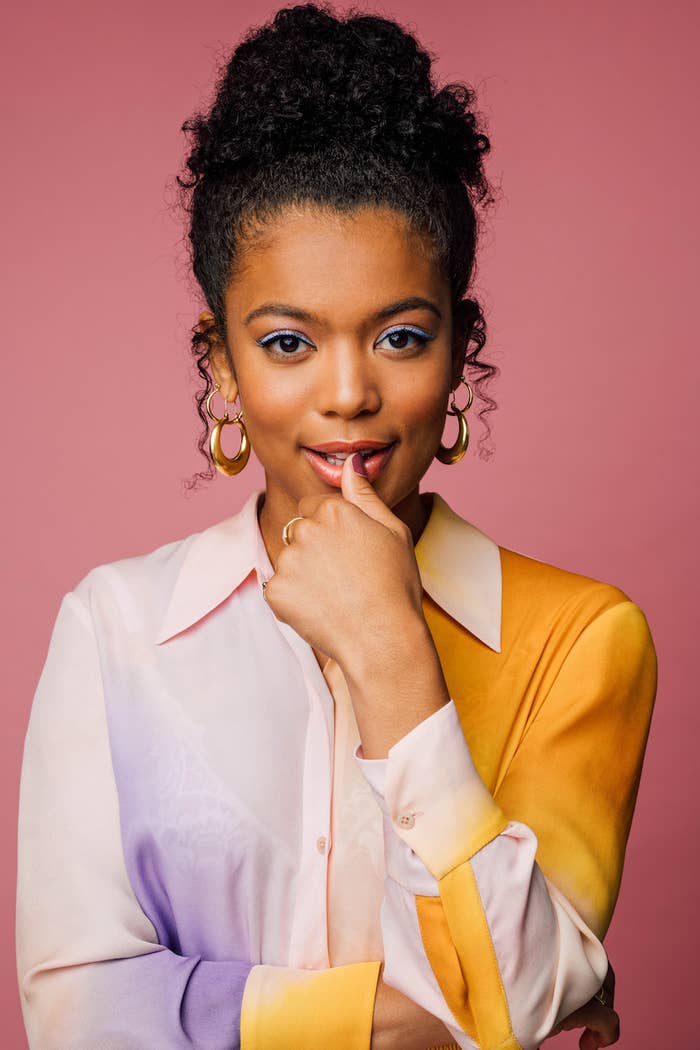
Jaz Sinclair and I are sitting in a green room in the BuzzFeed NYC offices. Unlike the other celebrity interviews I've conducted here, there are no publicists, no managers, no glam squads, no friends, and no family. There's no team mate to rebound unflattering statements, assist uncomfortable questions, or block controversial talking points. Just a young actress whose once steady acting career has recently exploded thanks to her breakout role as Rosalind "Roz" Walker on Netflix's The Chilling Adventures of Sabrina and a journalist tasked with waltzing that thin, awkward tightrope between invasive business-minder and compassionate human being — which is probably why Jaz stops and thinks for a second before answering my first question ("What's new with Part 2 of the show?")
"When does this come out?" she asks. After Part 2 premieres, I tell her, at least a week from today. "I'm always so scared. I'm always like — she flashes me a panicked look — "What can I say? What can't I say?" Jaz doesn't want to be the one who, after nine months of filming in Canada, "f****d it all up" for everyone. "I'm really scared of getting that phone call." Jaz does not possess the "cunning," a genetic supernatural foresight that her character Roz develops at the cost of the high schooler's literal eyesight. Nevertheless, she decides to trust me (and herself) enough to open up about portraying a magical, flawed black girl in 2019 and protecting her integrity and personal life as her celebrity skyrockets to uncharted heights.
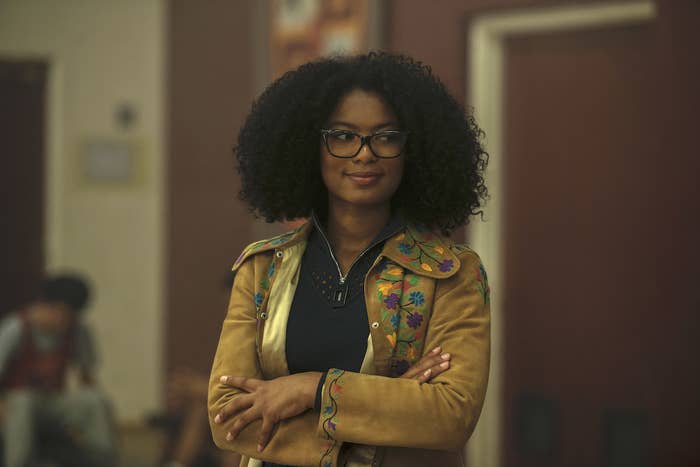
Talk a little bit about the growth of Roz from Part 1 to Part 2.
Jaz Sinclair: In Part 1, Roz was somewhat accepting of the witch world, but also somewhat not sure about the religion of it all. And then in Part 2, she really starts coming into her own powers and has some crazy encounters. So she comes into her badassness a little bit more, and into herself as a young lady. She’s a little more flowered in a really nice way. And there’s a little "love square" action going on with Roz, which I’m really excited for because it wasn’t an expected romance and it just develops really beautifully. I just think people are really gonna like it.
I read that Roz actually starts losing her eyesight in Part 2, as a result of the generational family curse her grandmother foreshadowed in Part 1. How did you prepare to play a character who’s going blind?
JS: Well, I don’t know if stressing over it counts as preparing! I just really wanted to do it justice and didn’t want to understate such a serious experience. In preparation, I did research about different degenerative eye diseases and really just spent time imaging what that was like emotionally, as a teenage girl not being ready to lose her vision. She still wants to go to prom and still wants somebody to kiss her and there’s so many things she still wants see.
Also, blind people’s eyes often times are open, and so trying to "tune out" my eyes while they were open and focus on my other senses instead was the hardest part. Sighted people lead with their eyesight so much of the time, so if I'm in a scene and somebody’s talking to me, my eyes want to dart to that person. It was cool and challenging and I’m grateful that the writers wrote a lot of juicy scenes for me to portray this experience throughout the storyline.
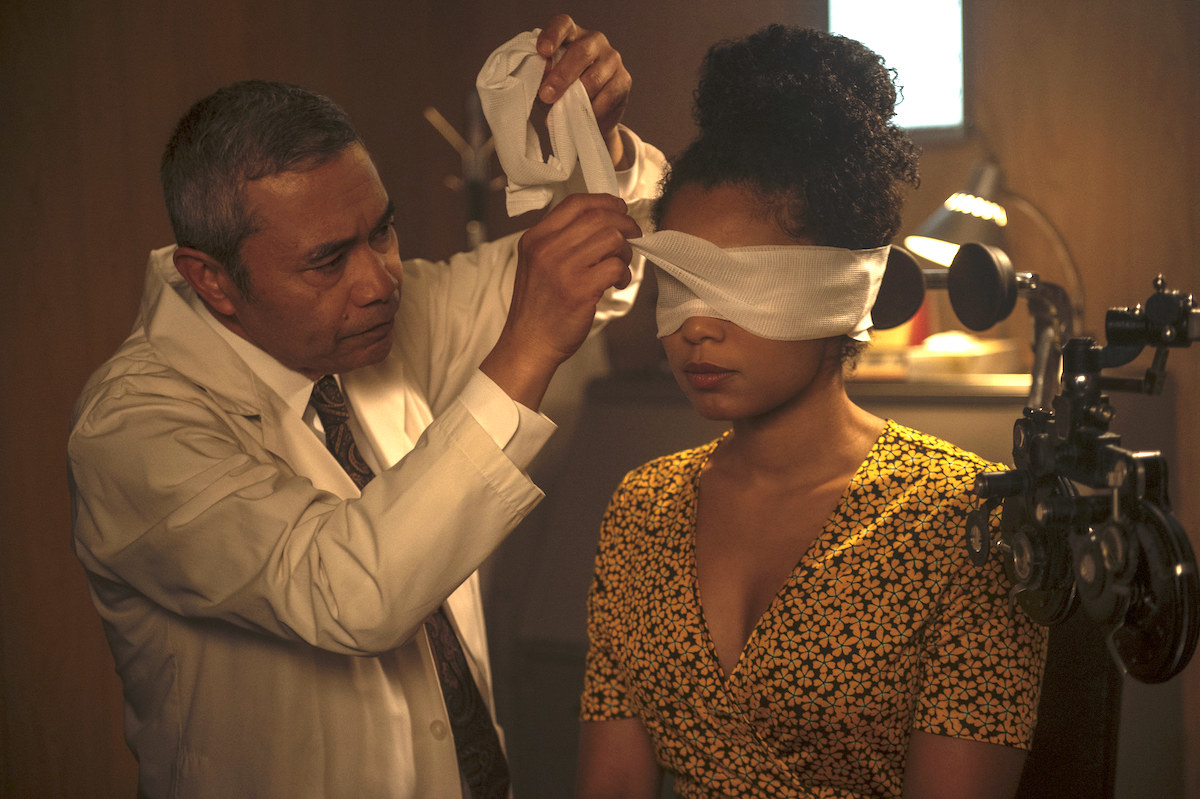
You’re a black girl and this is a show about magic, so I gotta bring up black girl magic. A lot of us use the expression to empower ourselves and our community, but there are some people who've questioned whether it perpetuates the "superwoman" stereotype that black girls and black women have an unrealistic superhuman ability do it all — no matter what.
JS: As women we’re expected to be superhuman, especially black women. We’ve been at the bottom of the social food chain [in American history] and we’re constantly fighting back all of these assumptions that others have made about us throughout time. So having to be hyper-strong is definitely a thing. That’s why I like to talk about embracing vulnerability and embracing anger and making mistakes and being a flawed human. It’s unfair that people of other races have room for that, and as black women we are expected to be extra, extra strong in a world that doesn’t always empower us.
Although [there's been some recent progress through representation], thank God, and I’m happy to be a part of that. It’s been a long time coming. That's why I was really grateful for [Roz's character arc] in Part 2. I didn’t wanna end up just being the supportive black friend who had no struggles and no humanness, because those parts happen all the time. People [add black characters] just so they can say that their project isn’t racist, but this wasn't the case. It's just so cool to be a part of a project like this because Roz is also flawed, vulnerable, and hurting, and she's making human decisions instead of just chiming in.
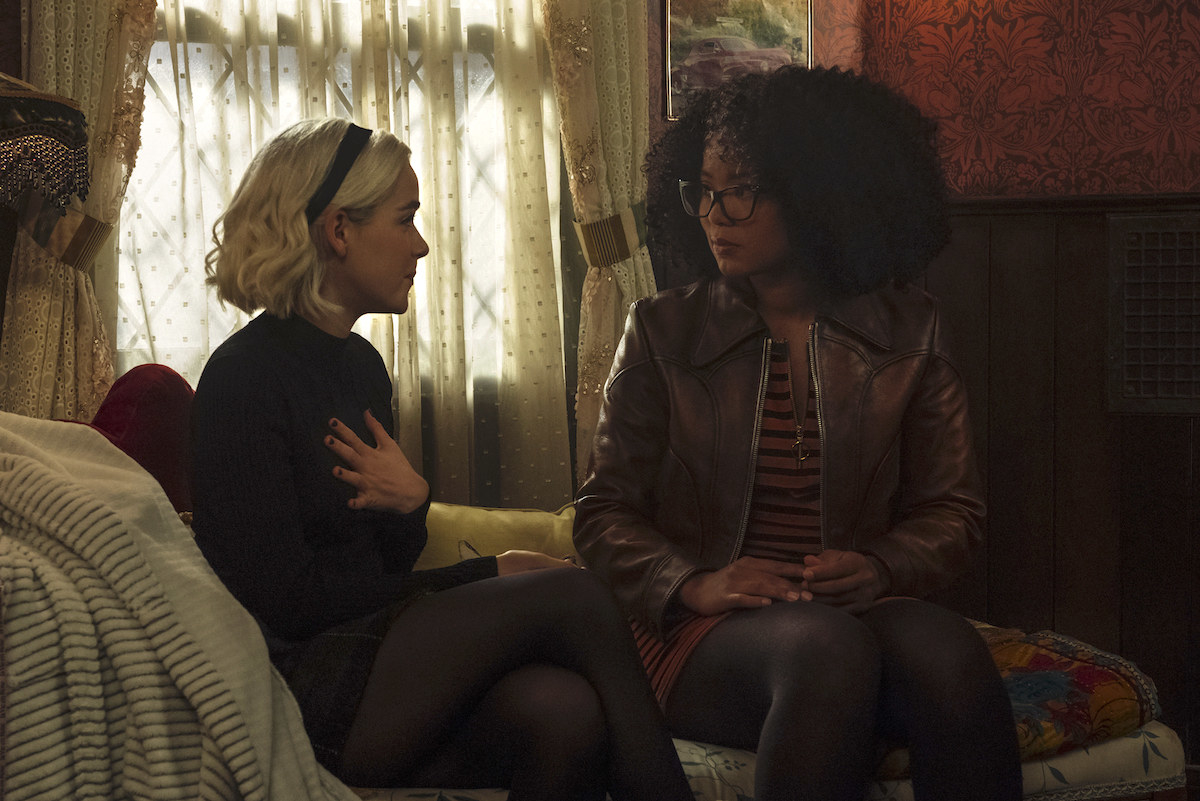
Alright, in an old interview you said this about working on high-coverage projects: "I love my anonymity and I love my privacy and I love the life that I live, and that whole world kind of scares me. So I've just been taking it day-by-day and trying to keep my integrity and myself and set boundaries and figure it all out." What kind of boundaries do you set for yourself to make sure that you honor your integrity?
JS: The more I get into this industry the more I kind of see that it’ll take as much as you give. So for me, setting boundaries is sometimes saying no, and just being like, "Actually I don’t want to do that" even though people might in my situation say yes. And my confidence to say no has totally grown over time. In the beginning it was like, "Let's go!" to any and everything. Now, I’m aware that there’s always more to do, so when I get offers — not job offers, but maybe other offers, like press— I can ask myself, "How do I feel? Is that where I’m at right now?" And I can say, "Not today." And it doesn’t have to be a solid no. It could just be a, "Thank you, but not right now." That's where I'm at, just kind of letting myself be a human first, and an actor second.
My career's been a slow and steady build, which I'm grateful for, because had it been this thing where I just exploded, I don’t know that I, as a sensitive person, could have handled it emotionally. Now, I’ve been around long enough to understand how things work, and so as I get more fans I can navigate my public and personal lives a little more gracefully, whereas before [being in the Hollywood spotlight] freaked me out and I hated it. I mean, I cried on my first red carpet. I literally walked off and cried because there were so many people and they were all taking pictures and I just felt overwhelmed because I’m a feeler and I'm sensitive. But now I feel ready for whatever comes because I know how to set boundaries. And if I’m in a situation for my career or with fans or whatever, it’s usually on my terms and then I can choose how much to share or not to share.
That being said, I'm not really fearing [the spotlight] anymore. And, it’s mostly been a positive experience [with TCAOS]. The show's fans are really sweet, passionate, and just happy to meet me and the cast. I'm always blown away because I don’t feel like a celebrity. Maybe it’s because I know people who are more famous than me. So when people meeting me are like, "Oh my God!" it’s a crazy feeling.
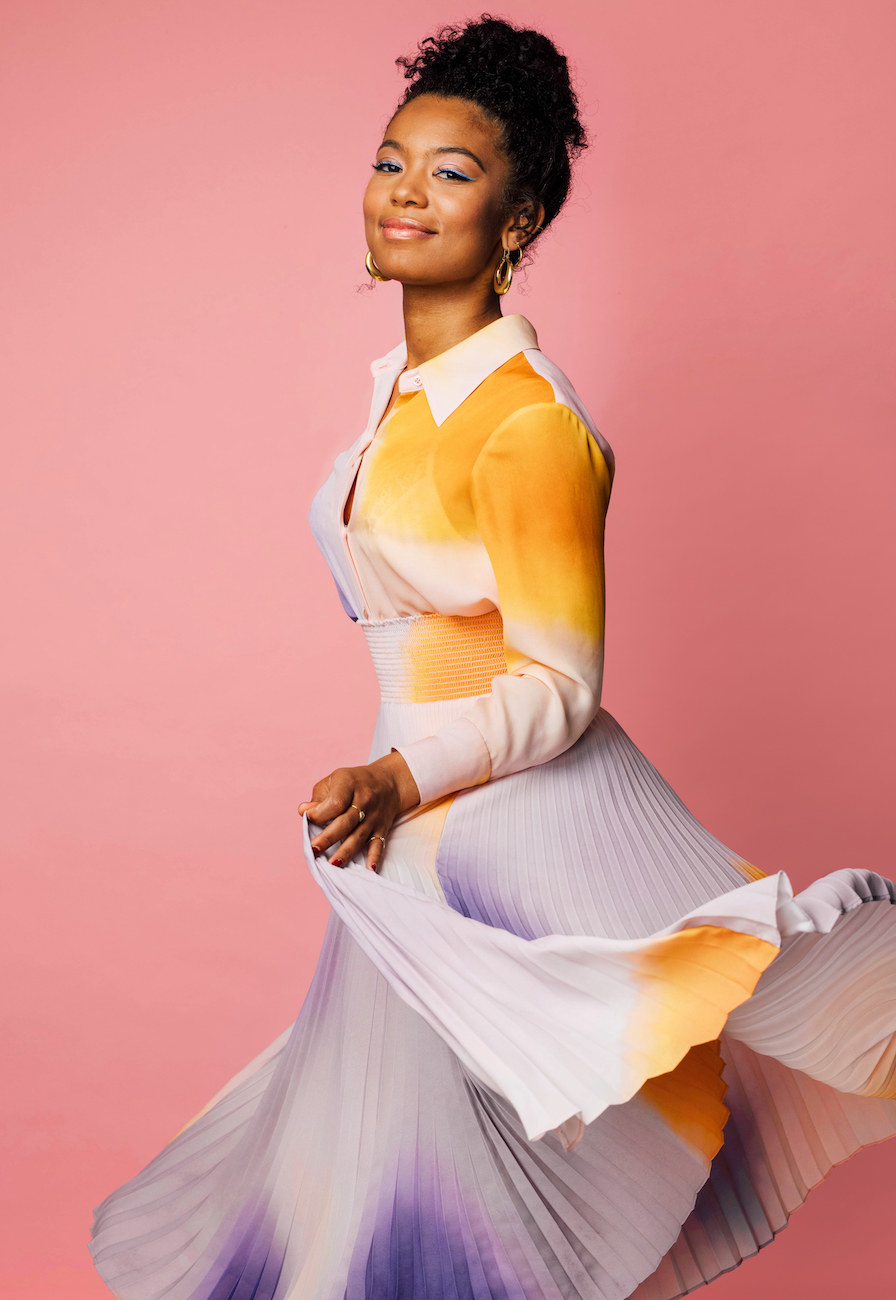
Now usually when I interview women, I avoid asking them about relationships because they often get defined by that, while men don't. On the other hand, I'm a journalist, I write for BuzzFeed, and our audience is interested in celebrities and their relationships. So is there anything you’d like to share about your relationship?
JS: Not really. Like I said, I’m a private person, and I just…I dunno. Because it’s like, that’s a whole can of worms and opening that can of worms means that then everybody will feel like they can ask me about that part of my life, you know what I mean? It’s not that I don’t want to talk about how I’m feeling, you know? I’m always talking about how I’m feeling! But with that particular subject, I would rather keep it to myself at this point.
Why?
JS: Yeah, that’s a good question. It’s…(laughs). It’s hard for me to talk about without talking about it!
Knowing your reasons for not talking about this part of your life might really help people empathize with you as a person. Because I think at times people demand so much of celebrities because they are public figures…
JS: And that’s kind of what it is, probably more than anything. I’m a human first and a celebrity, pfff, seventh, you know? And think about it. If you love somebody, that’s coming from one of the most intimate places of your heart. Imagine letting hundreds of thousands of strangers in on that and not being affected. I’m not there yet.
Does having to maintain privacy in your personal life impact your relationship?
JS: Well, no...No. It just is what it is. We’re really close. That’s my favorite person. That’s what I’ll say.
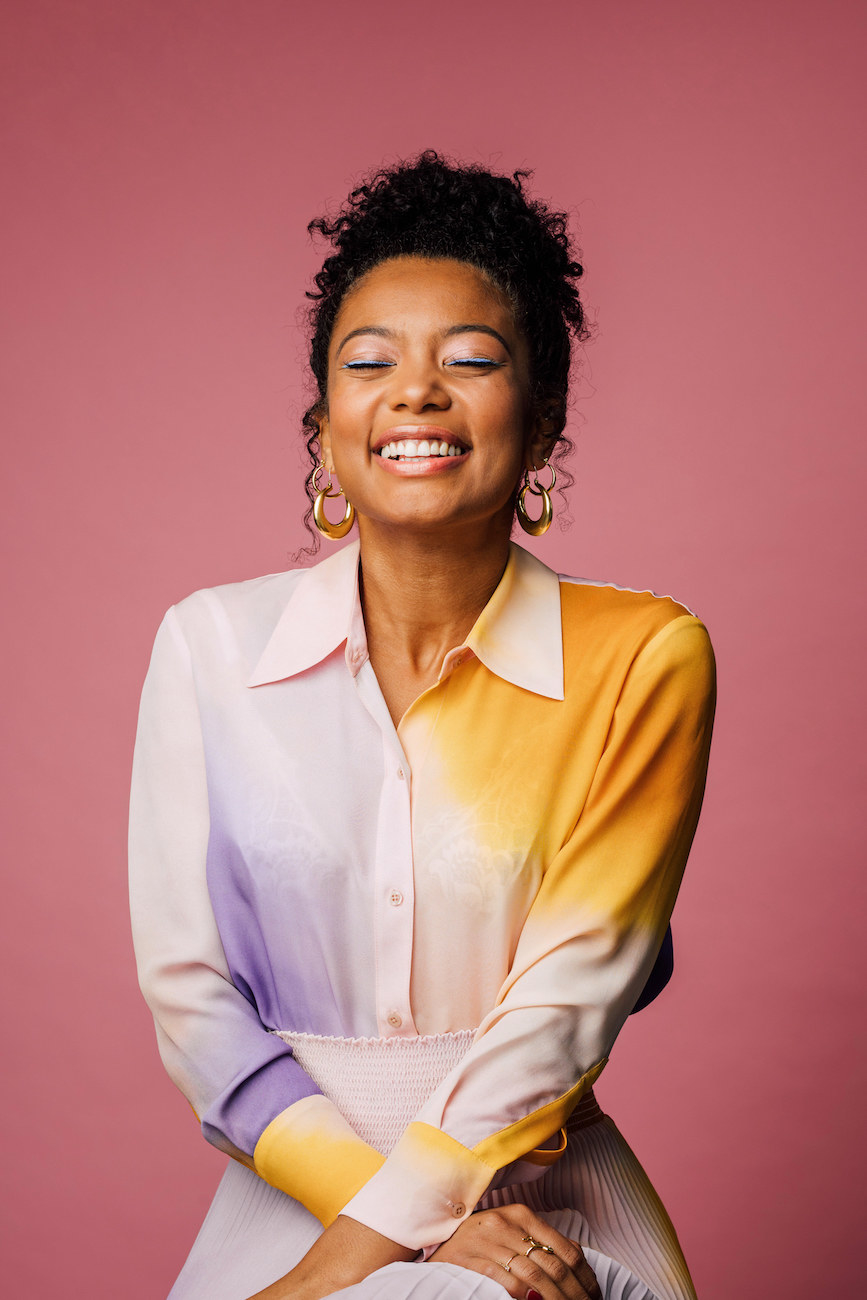
Gotcha. So I was browsing through your Instagram page and spotted a video of you singing on stage. In the caption you mentioned sharing the stage with some "dope artists" and performing some songs that you'd written. Tell me about that.
JS: It’s kind of a newer thing for me. I mean I’ve always loved music and loved singing, but I just thought for a long time that I couldn’t. Then a few years ago, I just said, "Fuck that! I’m gonna sing all the time and I’m gonna teach myself how." And once I started singing, people told me they actually really loved my voice! So I’ve been writing in journals since I was 14 and…Oh man, I’m so nervous about what you’re gonna write about everything I just said. I’m wondering if I said too much. Anyway…
About the singing?
JS: No about my relationship.
Is there a particular part about what you said that you’re nervous about?
JS: Maybe the part where you were asked whether [maintaining my privacy] is hard for on my relationship, because all these people are gonna be like "That’s a confirmation! And fricking run with that." You know what I’m saying?
Well I asked that because even if you weren’t an actress, there are always that cause added stress on relationships…
JS: Oh my God, if I wasn’t an actress and in a relationship, I would be like, "This is motherf***ing boo, y’all! Check it out! Here’s us making out on the f***ing bridge! Here’s us making out by the f***ing lamp!" That’s how I am. But this is the decision I've made. Also like you said, I’ve worked really hard to be where I am, and as a black woman, harder. So, I’m not willing to be someone’s girlfriend in my career, because that’s not what I worked for. I wanna be known for my accomplishments, not who I love.
Exactly! When I Google you, the first couple of articles that come up shouldn’t be about rumors about who you’re f***in dating. Because, like you said, you’ve been working a long damn time…
JS: For a while! And that’s the other part of it too. A lot of the fans I have are new fans, so I don’t want fans for that reason. That’s not me. But also, in a year from now, I don’t know how I’m gonna feel, because I don’t know who I’m gonna be. You know? But right now that’s where I’m at.
I think it’s good, because sometimes when celebrities are asked about their personal lives, they're just like "No, period," which is valid. But I also think it’s powerful to at least flesh out the narrative…
JS: I do, too. It's a conversation, a discussion, and I’m happy that we had it. ●
This interview has been edited and condensed for brevity and clarity.
